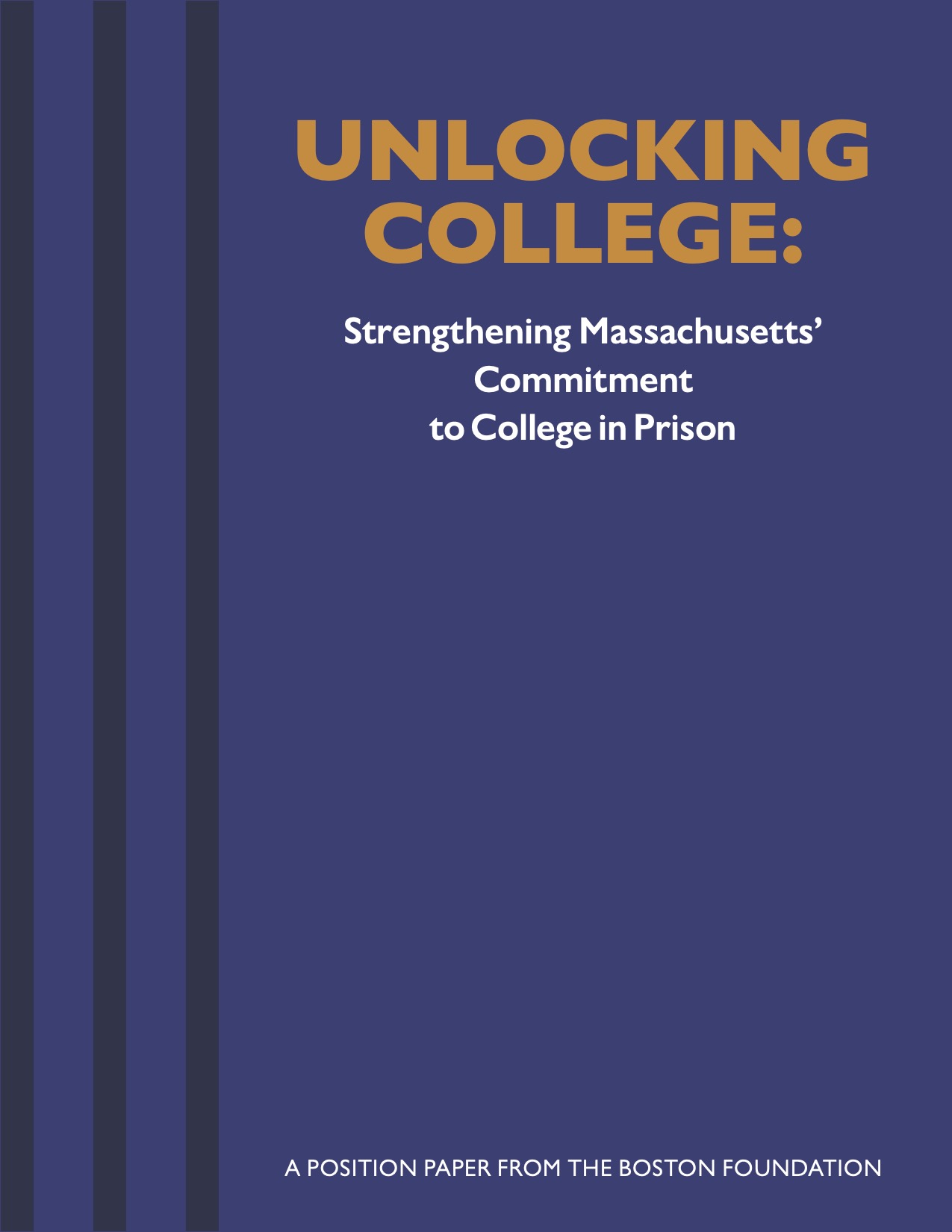Position paper calls for expansion of higher education opportunities in Massachusetts prisons
November 30, 2022
Boston – A bipartisan group of Massachusetts organizations today called for an expansion of efforts to provide increased access to higher education to inmates in Massachusetts correctional facilities. The group laid out its case in a position paper entitled Unlocking College: Strengthening Massachusetts’ Commitment to College in Prison, released today by the Boston Foundation.
The paper cites programs offered in several other states, and data that suggest every dollar invested in “college in prison” programs provides from five dollars to as much as 20 dollars in benefits or savings in the cost of re-incarceration, and reduces recidivism by as much as 28 percent.
“College-in-prison programs change the lives of their students, but the programs themselves face numerous challenges that impede the ability of colleges and universities to provide the needed breadth and scope of opportunities,” said Lee Pelton, President and CEO of the Boston Foundation. “This paper demonstrates where expanded resources can have the greatest impact and bring these programs to more incarcerated students.”
Overall data show that while Massachusetts has one of the lowest per capita prison populations in the nation, the state’s prisoners are disproportionately young men of color, with well over half of prisoners identified as Black or Latino. The state Department of Corrections also spends just 2 percent of its operating budget to programs for prisoners, 95 percent of whom will return to their communities.
Today, five institutions—Boston College, Boston University, Emerson College, Mt. Wachusett Community College, and Tufts University—offer degree-granting programs for people incarcerated at DOC facilities across the state. Several others offer coursework without credit or a degree pathway. More than 200 incarcerated people are enrolled in programs ranging from certificate to BA pathways. While the programs provide opportunities, they also face challenges ranging from a lack of access to technology and facilities to that of managing students who are transferred between facilities.
The paper finds possible models for a more robust system in several other states. In New York, for example, more than 1,400 incarcerated people take courses from a diverse network of 24 colleges and universities, and in Connecticut, students have access to both online and in-person coursework and are eligible for financial aid – especially critical since incarcerated people were declared ineligible for Pell grants in 1994. (The program will be reinstated for incarcerated students in 2023.)
The working group calls for Massachusetts’ next governor to make college-in-prison a higher priority, providing physical spaces and increased access for colleges to work with their incarcerated students – changes that require virtually no state investment of funds.
"A better system of college in prison will save taxpayer money and increase public safety,” the report concludes. “Even more, it will help our government in Massachusetts reflect our most cherished values.”

